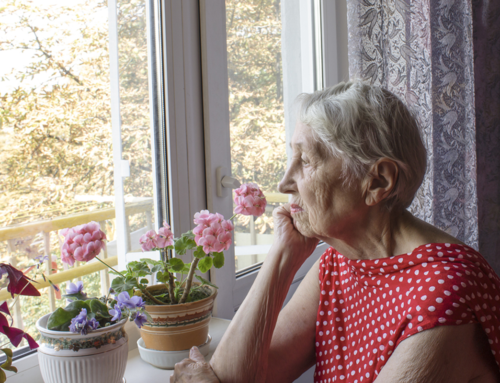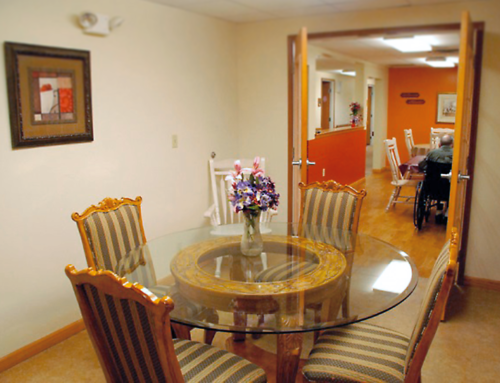Moving is the third most stressful event second only to death and divorce, and for those with memory loss it can be very traumatic.
When a move is necessary, the experience may be bewildering at best, and traumatic at worst. But trauma isn’t inevitable. When individuals transfer to good facilities, where the staff has expertise in transition, distress can be minimized and will be eased with time.
Transfer trauma refers to a severe emotional response to the move and may occur before, during and for several months after the move. Symptoms may include feeling sad, angry, irritable, depressed, anxious and tearful. The person with dementia may exhibit combative symptoms such as screaming, complaining and other challenging behaviors. They might wander, shut down, withdraw, refuse care, isolate themselves, and refuse to take their medications, Physiological symptoms include confusion, pain, falling, rapid heartbeat from anxiety, sleeplessness, poor appetite, weight loss or gain, If unaddressed, the consequences of transfer trauma can be severe, potentially resulting in an erosion of cognitive and physical functioning.

Many people with dementia often still feel capable of living at home and so resist a move. Their insight into their own deficits and needs is impaired, and their belief that they can remain at home safely is strong. In their own home familiarity allows them to have some independence. A move erodes their comfort and confidence, causing fear and anxiety.
The nature of the setting can also be an indicator of the degree to which individuals may suffer. Long term care communities that don’t truly deliver person-centered care and those that treat residents more like a disease than a person will see the greatest amount and severity of transfer trauma. Some facilities commit ‘identity theft’ meaning that they fail to learn or integrate the individuals, their habits, preferences, or routines.
Long term care communities that discover, honor, and integrate the person’s individuality into care will get the best results.
Families typically respond well if they know what to expect and believe that they have a team that is experienced and skilled in caring for the special needs of their loved one with dementia.
A successful move may often begin with the story. Though seniors with Alzheimer’s or dementia may be physically present with us, in their minds they could be reliving previous times of when they were a child or when they were still married. To make the moving process easier, families can tap into their reality and ask “What do you think is going to happen?” or “Where do you think you are going?” and so build on the story on the level of their reality.
These are the strategies we use at Anam to reduce transition trauma:
- Our entire team spends time learning the life story of the resident through communication with family members, this information provides our staff with information about our residents’ lives, habits, preferences, routines, and emotions. We use this life story to integrate typical routines activities and preferences into our resident’s day to day experience. Enabling them to feel as if they have gained instead of lost can help our residents move through the adjustment process more expeditiously and smoothly.
- We work hard to build strong friendships/relationships between staff and residents, and residents and other residents. We find ways to give residents a sense of purpose in the community, whatever that means to them, ensuring it feels like home.
- We help families understand the importance of setting up their loved ones with things that really remind them of home. It is common for families to think that their loved one with dementia would like their Sunday best clothes when in reality they are more at home in their comfy slippers and favorite mug.
- We make sure each resident knows they are valued, responded to, and honored, and that their presence has enriched our day.
- We help families understand what to expect, and that adjustment may take time. It depends on the circumstances, but it may take a month for an individual to adjust to a new home. However being a true home, we have found many individuals who have settled into our small homes without any apparent problems let alone trauma.
At Anam we promote relationship based care, made easier by the fact that we provide a small home environment. Because of this we can assure that a residents move to our home is done in an atmosphere of compassion, respect and understanding, thus reducing as much as possible the trauma that can occur during their transition from their home to their new home at Anam.








